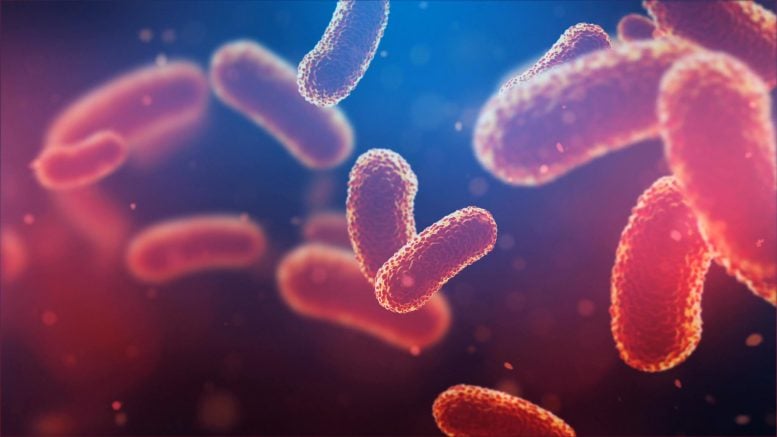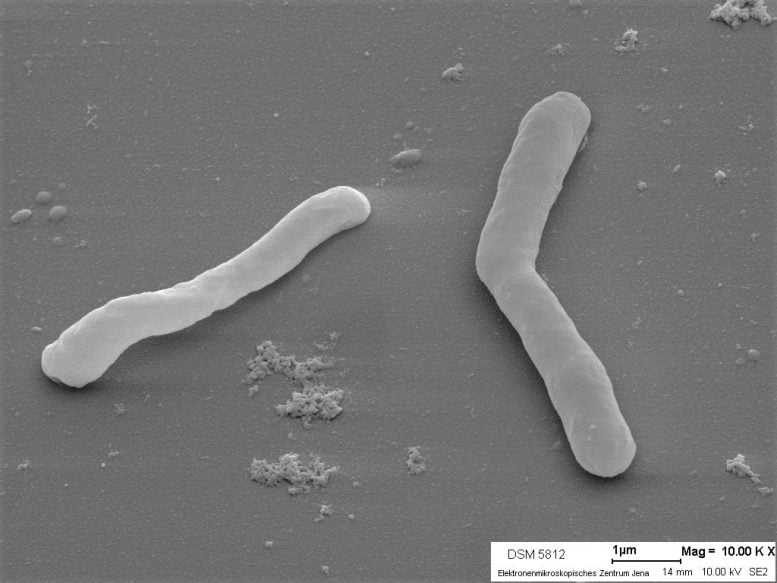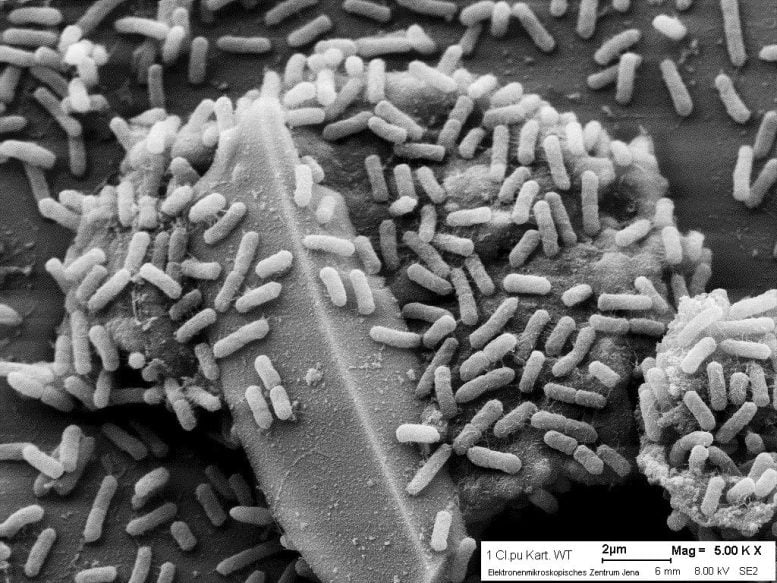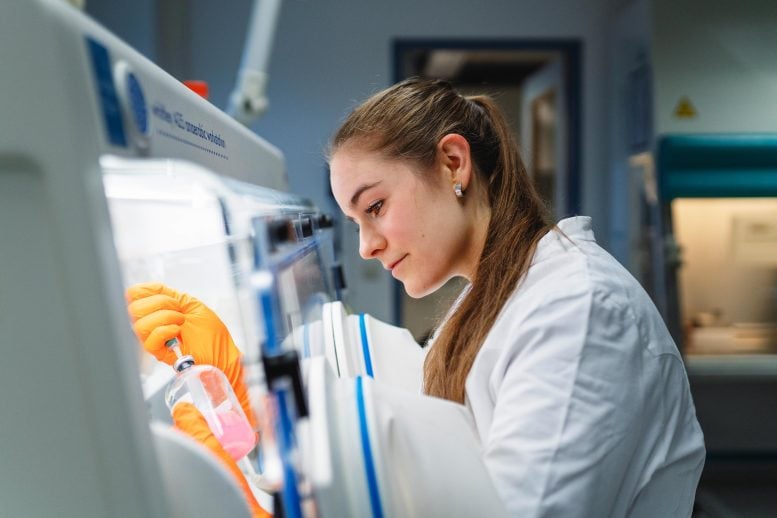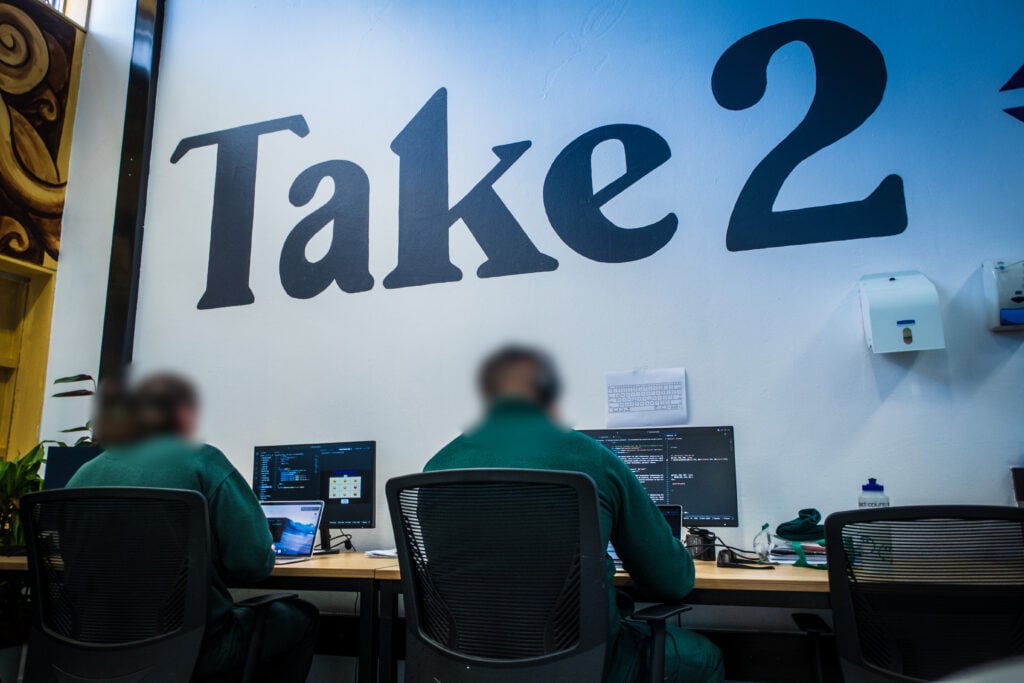Decoding the Dark Metabolism: Synthetic Biology Exposes Secrets of Life Without Oxygen
Technology tamfitronics By Friederike Gawlik, Leibniz Institute for Natural Product Research and Infection Biology – Hans Knöll InstituteAugust 10, 2024
Anaerobic bacteria, which thrived in oxygen-free environments long before oxygen-dependent life forms, are vital for both human health and the ecosystem, influencing everything from gut health to disease. The AnoxyGen project led by Christian Hertweck aims to explore these bacteria’s untapped biosynthetic potentials to discover new compounds, improving medical, ecological, and biotechnological understanding and applications. Credit: SciTechDaily
The AnoxyGen project, led by Christian Hertweck and funded by the ERC Advanced Grant, explores the potential of anaerobic bacteria in biotechnology, medicine, and ecology, aiming to discover new bioactive compounds.
The earth was populated with numerous organisms long before
Scanning electron micrograph of Ruminiclostridium cellulolyticum. Christian Hertweck and his team discovered closthioamide in the cellulose-degrading anaerobic bacterium – the first secondary natural compound in this group of organisms. Credit: S. Nietzsche/EMZ Jena
Unleashing Anaerobic Potential Through the AnoxyGen Project
Christian Hertweck’s “AnoxyGen” project aims to unlock the immense, previously untapped biosynthetic potential of anaerobes. Despite their genome-encoded ability to form novel compounds, most of these biosynthetic genes are inactive in the laboratory, so the products have so far remained undiscovered.
Hertweck and his team now want to change this. Using newly developed molecular and synthetic biology tools, the researchers want to decode and harness the unknown metabolic pathways of these bacteria. The project encompasses several areas of work in which a powerful expression system is used to identify and modify new active compounds. This will also enable the team to produce and research the toxins and virulence factors of pathogenic anaerobes without having to cultivate large quantities of the pathogens themselves.
Scanning electron micrograph of anaerobic bacteria of the species Clostridium puniceum on a potato slice. Clostrubins were discovered on this model system by a team led by Christian Hertweck. Clostrubins have an antibiotic effect and protect the bacteria from oxygen while they infect the potato tuber and use it as a food source. Credit: Gulimila Shabuer / Leibniz-HKI and EMZ Jena
Recognition and Future Prospects of the AnoxyGen Project
“With this project, we want to provide novel methods and tools for the scientific community. We hope that ‘AnoxyGen’ will be of great benefit, particularly for medicine, but also for ecology and biotechnology,” explains Hertweck. “Anaerobic bacteria are still under-researched, but their metabolic processes offer great potential for the discovery of new active compounds. We can also gain new insights into their role as pathogens.”
Prof. Dr. Christian Hertweck, head of the Department of Biomolecular Chemistry at the Leibniz-HKI and professor of Natural Product Chemistry at the Friedrich Schiller University Jena, has been awarded one of the prestigious ERC Advanced Grants by the European Research Council. Credit: Anna Schroll/Leibniz-HKI
Hertweck, who has already been awarded the Gottfried Wilhelm Leibniz Prize and the Ernst Jung Prize for Medicine for his great scientific creativity in identifying new active compounds from neglected microorganisms, is also strengthening the Balance of the Microverse Cluster of Excellence, which studies the formation and balance of microbial communities, with this project. Anaerobic bacteria have so far played a subordinate role there, partly because they were difficult to access methodologically. The researcher now wants to close this gap.
Hannah Büttner from Christian Hertwecks team is experimenting with oxygen-sensitive bacteria of the genus Clostridium in a protected atmosphere in a so-called anaerobic box. Credit: Anna Schroll/Leibniz-HKI
The ERC Advanced Grant, one of the most prestigious grants of the European Union, recognizes the excellence and innovation of top researchers. Christian Hertweck’s “AnoxyGen” project was selected due to its great prospects for expanding our understanding of microbial biosynthesis and developing new biotechnological applications. With comfortable financial resources, the researcher and his interdisciplinary team will be tackling this topic over the next five years.



 Hot Deals
Hot Deals Shopfinish
Shopfinish Shop
Shop Appliances
Appliances Babies & Kids
Babies & Kids Best Selling
Best Selling Books
Books Consumer Electronics
Consumer Electronics Furniture
Furniture Home & Kitchen
Home & Kitchen Jewelry
Jewelry Luxury & Beauty
Luxury & Beauty Shoes
Shoes Training & Certifications
Training & Certifications Wears & Clothings
Wears & Clothings





